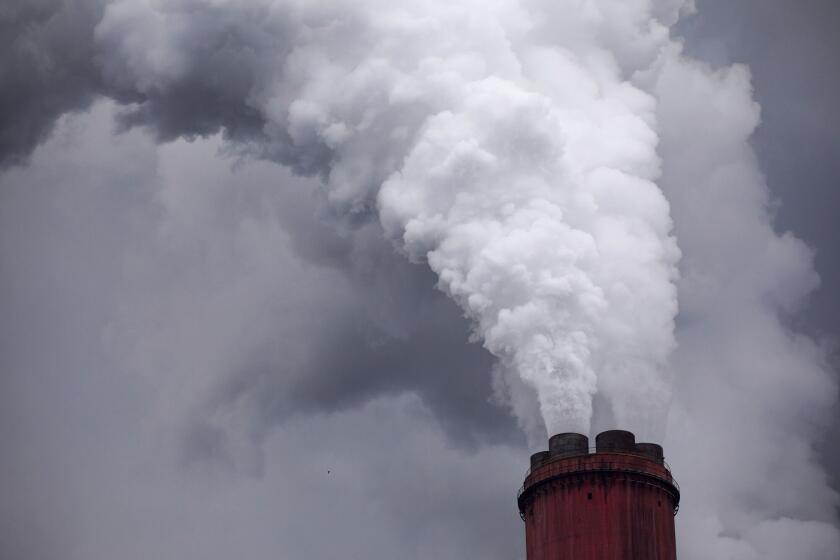Worrisome Get-Together
- Share via
So far in the 1980s, about all that Americans could do when one corporation gobbled up another was wish stockholders many happy returns.
The proposed merger of Southern California Edison and San Diego Gas & Electric companies is different. The idea was created in California, not on Wall Street. And because both utility companies enjoy the protection of monopoly status, their customers also enjoy the protection of as many questions about the wisdom of a merger as state and federal regulators think appropriate.
Many happy returns will take a back seat to what customers of a merged company would have to pay to cook and keep their homes warm.
Reserving judgment on a merger that would create the nation’s largest private utility company is a matter of prudence, not suspicion. Howard Allen, president of Edison, began stalking the San Diego-based company months ago, and, as Times writer Donald Woutat reported, just wore the company down.
Both companies insist that the stockholders would make out quite nicely under the merger agreement. Both also say that it would help rate-payers. The latter claim is the one on which the state Public Utilities Commission will focus.
These are two very different companies.
Edison was one of the first utilities in the nation to start looking for ways out of the postwar pattern of rising demand for electricity that was met year after year simply by breaking ground for more giant power plants. It has a well-deserved reputation for helping lead the way to alternative power sources that made it possible to slow the construction of giant plants.
SDG&E; was less successful in its quest for alternative sources. And when attempts to build additional plants failed in the 1970s, it chose to become more a broker than a producer of power. This strategy has helped it to maintain a healthy cash flow--something that a company like Edison might find attractive.
One argument that is very real but that regulators may find puzzling is that San Diego’s relationship with its utility company has long been close, and Edison is too far away to be close. Adding to that is a suspicion of anything that threatens to “Los Angelize” San Diego.
In fact, sentiment against the merger is sufficiently strong in San Diego that local officials are looking into the costly possibility of buying the company and making it a municipal utility.
San Diego’s concern about local control is an important consideration. In the end it may not prove to be the overriding concern, but it is understandable that the state’s second-largest city wants to keep control of its energy supply. That is less a consideration for the city of Los Angeles. Edison is in Rosemead, not Los Angeles, which has its own municipal power operations, and Edison’s identification with the city of Los Angeles has never been as strong as that of San Diego with its utility company.
But Los Angeles and San Diego do share one powerful concern--the quality of their air. San Diegans worry that the relatively clean air in their city could be used to subsidize Edison’s efforts to clean up its emissions in the Los Angeles Basin by moving power plants from Los Angeles to San Diego. As scientists learn more about the carbon-dioxide blanket that causes global warming in the Greenhouse Effect, it is increasingly clear that pollution anywhere can damage growing things everywhere. Although the concern that pollution might be exported to the San Diego area may lie beyond the Public Utility Commission’s normal study, it is in this case a legitimate concern.
In fact, compared to concerns about global temperatures and the Greenhouse Effect, acid rainand other environmental threats, the financial and geographical aspects of a merger that would form the nation’s biggest public utility may one day seem small potatoes.
More to Read
Inside the business of entertainment
The Wide Shot brings you news, analysis and insights on everything from streaming wars to production — and what it all means for the future.
You may occasionally receive promotional content from the Los Angeles Times.










